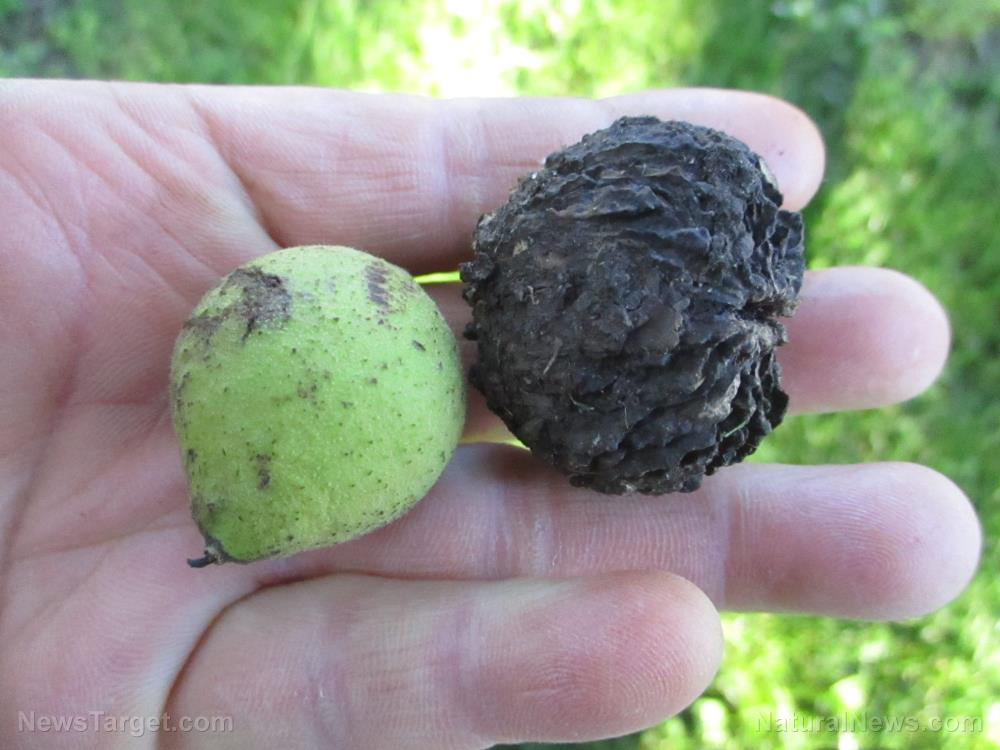Take a look at this: Can coconut oil help prevent macular degeneration?
05/07/2019 / By Evangelyn Rodriguez

Coconut oil is an edible oil obtained from mature coconuts. It is considered a superfood due to its many health benefits. Aside from being able to decrease insulin resistance, increase good cholesterol, and soothe the skin, coconut oil can also protect the eyes from the irreversible damage caused by age-related macular degeneration.
Coconut oil can protect the retinas from degeneration
Evidence for coconut oil‘s newly discovered health benefit came from a study published in the journal Pathophysiology.
Back in 2018, researchers from the University of Ilorin in Nigeria investigated the retinoprotective effect of Cocos nucifera oil (CNO) or coconut oil. They used twenty male Wister rats and divided them into four groups. They gave the control group only distilled water and exposed the other three to 5,000 lux of bright white light for two hours to induce retinal degeneration.
Prior to light exposure, the researchers gave the light model group (LMG) distilled water for 14 days. They gave the low C. nucifera oil (LCNO) group 5?milliliter per kilogram (mL/kg) of CNO and the high C. nucifera oil (HCNO) group 10?mL/kg of CNO for 14 days. The treatments lasted for seven days after exposure to light. After the treatment period, the researchers prepared the right retinas and occipital cortices of the animals for histological evaluation. They used homogenates of the left retinas for biochemical assay.
The researchers found that CNO significantly reduced caspase-3 activity and malondialdehyde concentration. Caspase-3 is an enzyme that mediates programmed cell death or apoptosis. Malondialdehyde, on the other hand, is a marker for oxidative stress. Oxidative stress is known to be involved in vision-impairing diseases such as age-related macular degeneration and light-induced retinal degeneration.
The researchers found no significant difference in the total antioxidant capacity in the retinas of the treated rats. However, they observed a significant increase in catalase activity in the LMG. They also noted that CNO treatment was able to preserve retinal morphology in the treated groups while in the LMG, they observed a distortion in the retinal layer and a significant reduction in retina thickness.
Based on these findings, the researchers concluded that coconut oil can protect the retinas through its antioxidative and anti-apoptotic activities. (Related: What are the health benefits of butter and coconut oil?)
What is macular degeneration?
According to the American Macular Degeneration Foundation, macular degeneration is an incurable eye disease that affects more than 10 million Americans. It is the leading cause of vision loss in the U.S., followed by cataracts and glaucoma. Macular degeneration is a result of deterioration in the retina, the part of the eye that records the images we see. At the center of the retina is the macula, which is responsible for focusing the central vision of the eye. The macula controls our ability to read, recognize faces, identify colors, and see objects in fine detail. As its name suggests, macular degeneration targets the macula specifically.
The cause of macular degeneration is still unknown. Research suggests that it is not only age-related, but also hereditary (genetic) and environmentally related. Because of this lack of elucidation, there is no treatment for macular degeneration at present. Age-related macular degeneration (AMD) is divided into three stages:
- Early AMD – Early AMD is not associated with vision loss. It can only be diagnosed by the presence of medium-sized drusens or yellow deposits beneath the retina. This is why having regular eye check-ups is important.
- Intermediate AMD – While there are still no notable symptoms associated with this stage, it might already cause vision loss for some. Diagnosis of intermediate AMD relies on the presence of large drusens as well as pigment changes in the retina.
- Late AMD – Late AMD is associated with vision loss.
Visit Cures.news to find out about natural treatments for common eye problems.
Sources include:
Submit a correction >>
Tagged Under:
age-related macular degeneration, aging, alternative medicine, antioxidants, cataracts, coconut oil, coconuts, eye health, eyes, food cures, food is medicine, functional food, glaucoma, light-induced retinal degeneration, macula, macular degeneration, natural cures, natural medicine, prevention, remedies, research, retina, retinal degeneration, retinoprotective effects
This article may contain statements that reflect the opinion of the author
RECENT NEWS & ARTICLES
Antioxidants.News is a fact-based public education website published by Antioxidants News Features, LLC.
All content copyright © 2018 by Antioxidants News Features, LLC.
Contact Us with Tips or Corrections
All trademarks, registered trademarks and servicemarks mentioned on this site are the property of their respective owners.





















